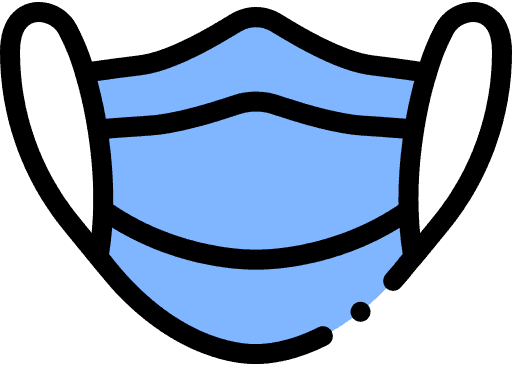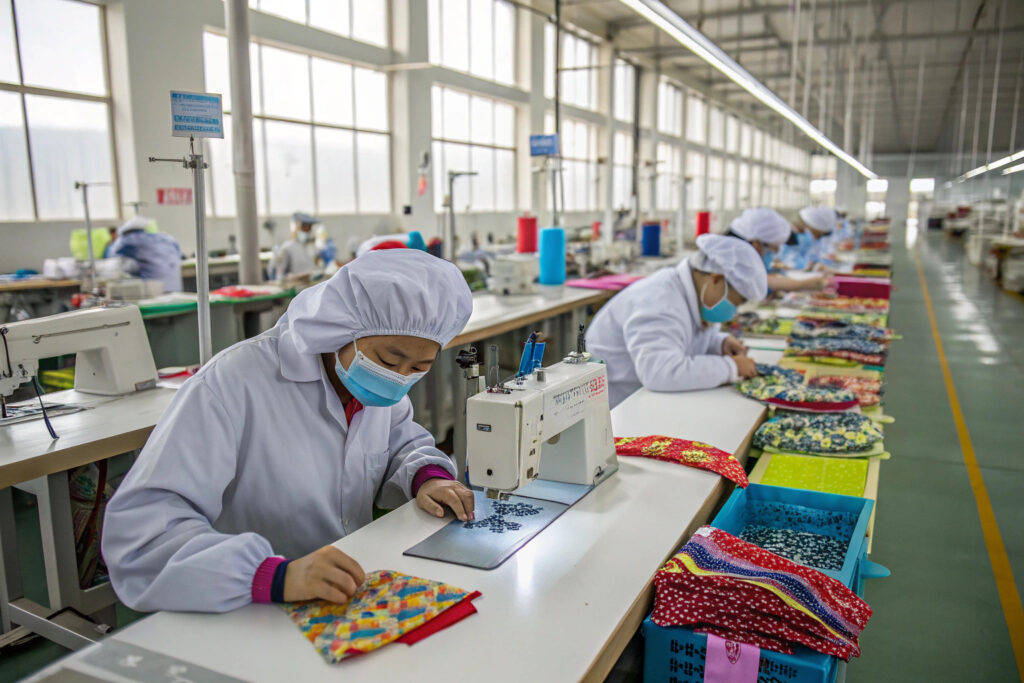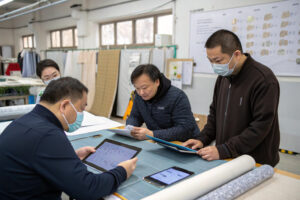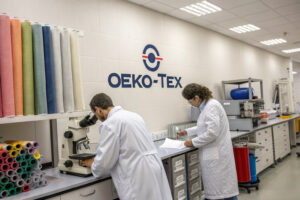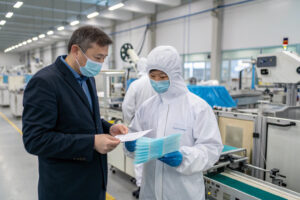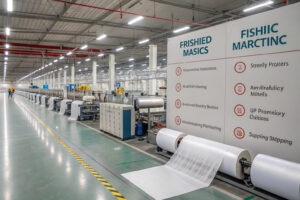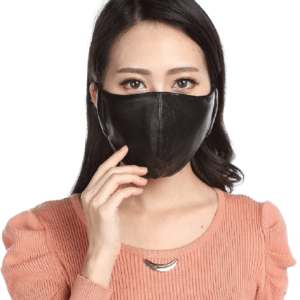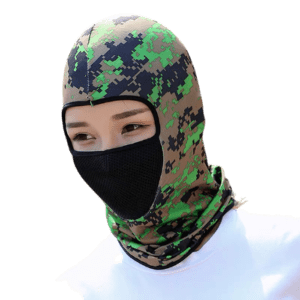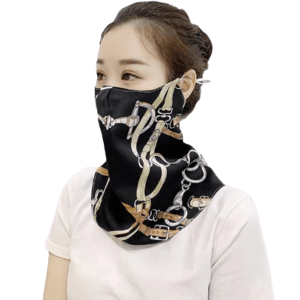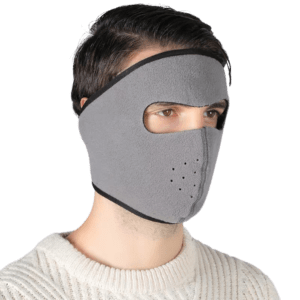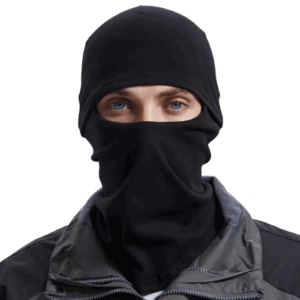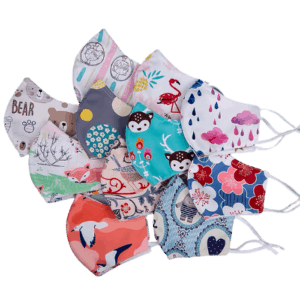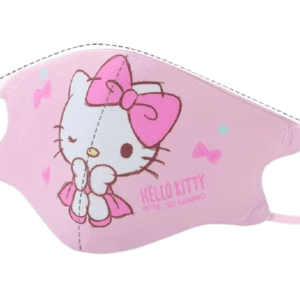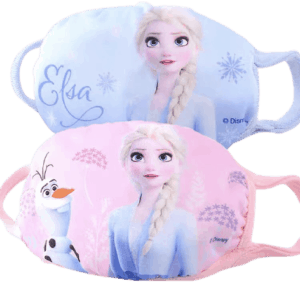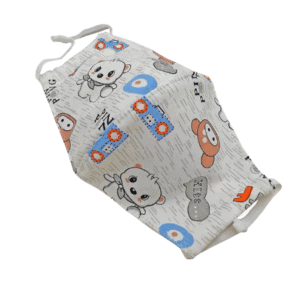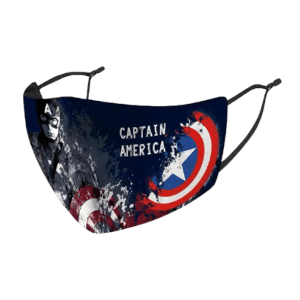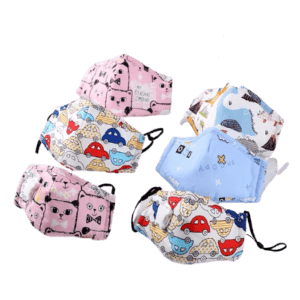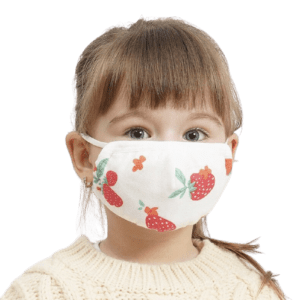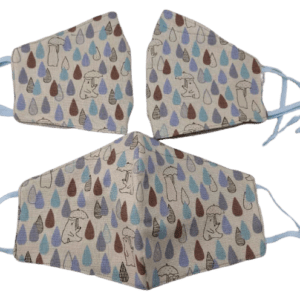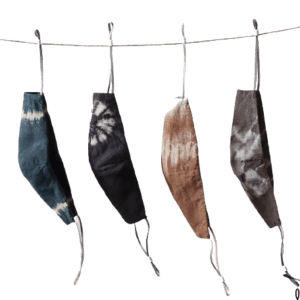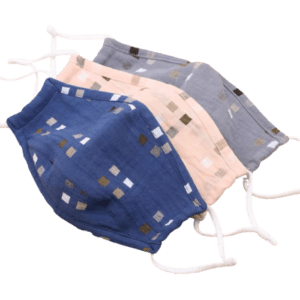As a long-term manufacturer in Keqiao, Zhejiang, I know first-hand how vital it is for global buyers to trust not just our products but the way we make them. Ethical production in China’s fabric mask supply chain is more than a marketing point—it is a competitive advantage. In an age where customers demand transparency, ensuring fair labor, environmental responsibility, and product safety is no longer optional.
If you are a buyer from the U.S., Europe, or beyond, you need more than the lowest price—you need assurance that your supply chain respects people and the planet. The challenge? Knowing which suppliers can prove it.
To make this easier for you, I’ll break down the key factors you should focus on, share how we address them at Global-Caps, and give you practical steps you can implement right now.
How to Verify Ethical Standards Before Partnering with a Supplier
Choosing the right supplier in China is like building the foundation of a house—if it’s weak, everything else will collapse. Many buyers rush into deals after just a few price negotiations, but without verifying ethical standards, they risk damaging their brand reputation.
At Global-Caps, we encourage every potential partner to request evidence of ethical compliance before signing any agreement. This is not just about trust—it’s about proof.
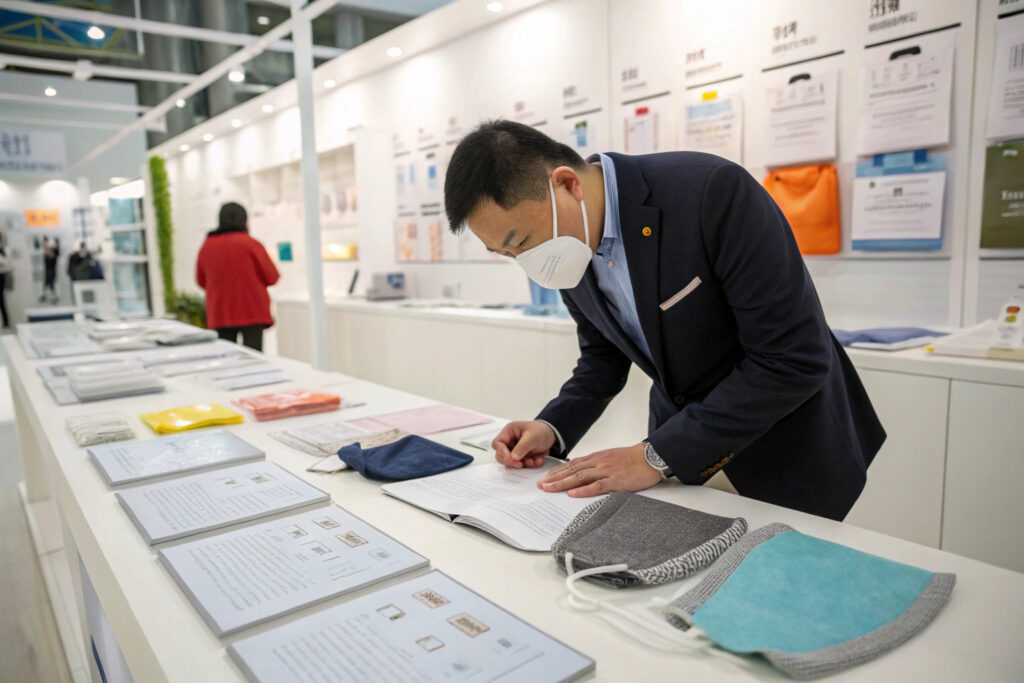
What Certifications Should I Request From My Supplier?
When vetting a fabric mask manufacturer, start with internationally recognized certifications. For labor practices, SA8000 Certification is a gold standard. For product safety, look for OEKO-TEX Standard 100 to ensure fabrics are free from harmful substances.
Beyond that, ask for BSCI (Business Social Compliance Initiative) audit reports or Sedex membership details. These certifications prove that the factory meets fair working hours, safe conditions, and no forced labor.
You should also cross-check these claims with independent third-party audits. Several inspection agencies, such as Intertek, can provide detailed factory compliance reports within days.
How Can I Conduct Remote Factory Audits?
If you can’t travel to China, a virtual factory tour is a powerful tool. Suppliers can walk you through their workshop via live video, showing production lines, storage, and quality inspection areas.
You can also hire firms like SGS or QIMA for remote audits. They can check everything from payroll records to fire safety equipment. At Global-Caps, we offer live video walkthroughs combined with digital document sharing so clients can verify our compliance in real-time.
Ensuring Fair Labor Practices in China’s Textile Sector
Fair labor is the backbone of ethical production. Without it, even the highest product quality loses value in the market. Unfortunately, labor exploitation is still a concern in some factories, making it vital for buyers to actively monitor this aspect.
Our own policy at Global-Caps includes not only meeting China’s legal standards but exceeding them with additional worker welfare programs.
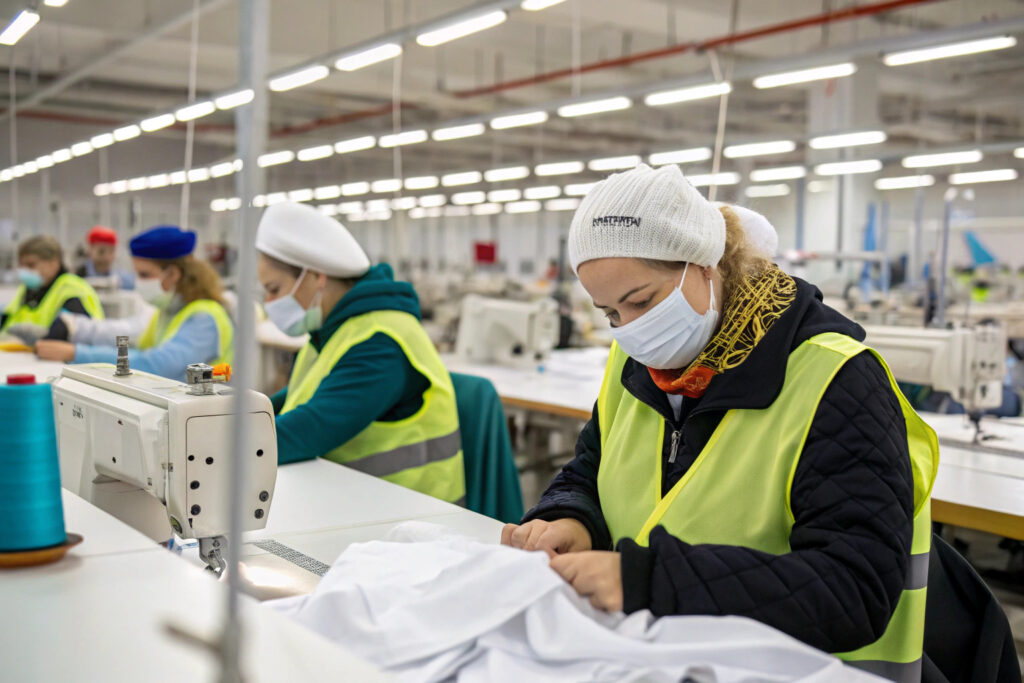
How Do I Ensure Workers Receive Fair Wages?
Start by requesting payroll records. Wages should at least meet the China Minimum Wage Standards for the specific province, but ethical suppliers go beyond that, offering performance bonuses and paid overtime.
We use a transparent pay system where all employees can see the wage structure. You can also ask suppliers to provide anonymous worker interviews conducted by a neutral third party, ensuring honest feedback without fear of retaliation.
How Can I Confirm Safe and Healthy Working Conditions?
Factories should comply with China’s Work Safety Law and have visible fire exits, safety signage, and first aid kits. Regular safety drills are a sign of a proactive management team.
Organizations like Amfori BSCI can verify workplace safety as part of their audit process. In our own facility, we provide ergonomic seating, climate-controlled environments, and regular health check-ups for all workers.
Environmental Responsibility in Fabric Mask Manufacturing
The environmental impact of manufacturing has become a central concern for buyers worldwide. A sustainable supply chain not only reduces harm to the planet but also aligns with the growing demand for eco-conscious products.
At Global-Caps, we have invested ¥550M in recycled fabrics and low-carbon production systems, following the UN Sustainable Development Goals (SDGs).
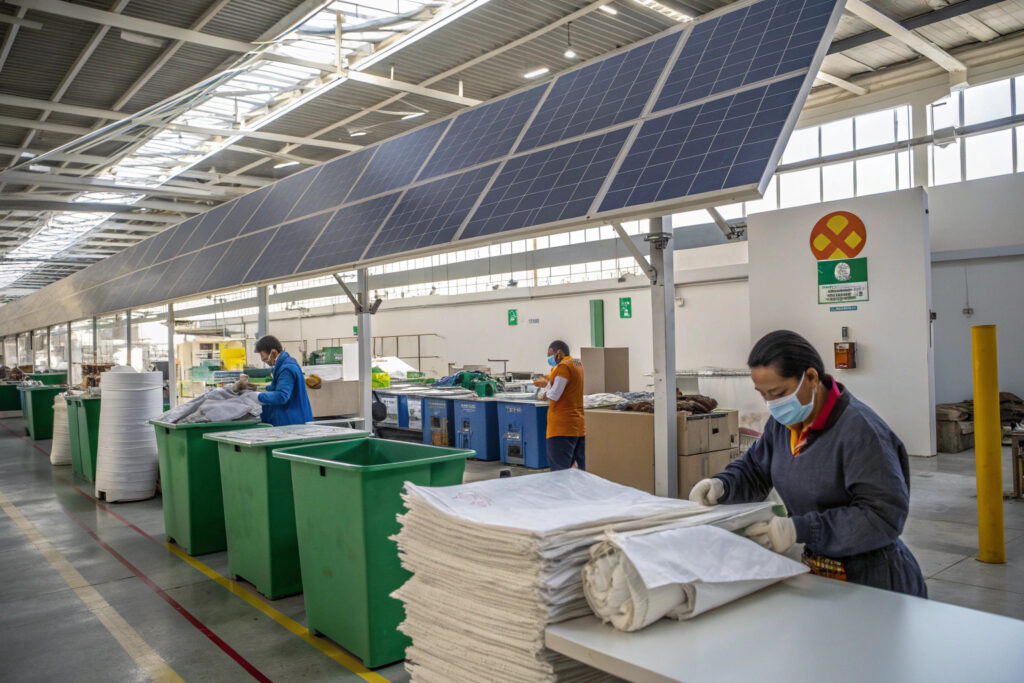
How Do I Check If My Supplier Uses Sustainable Materials?
Request material data sheets showing the percentage of recycled or organic content. Certifications like Global Recycled Standard (GRS) or Organic Content Standard (OCS) are strong indicators of sustainable sourcing.
You can also test material claims through labs such as Bureau Veritas, which can confirm fiber content and environmental compliance.
What Waste Reduction Practices Should I Look For?
Efficient waste management means fewer raw materials end up in landfills. Look for factories with fabric offcut recycling programs, wastewater treatment systems, and minimal use of single-use plastics.
Some suppliers partner with recycling companies like TerraCycle to ensure production waste is repurposed. In our case, every scrap of fabric is reused in making mask linings or donated to local community projects.
Transparent Logistics and Supply Chain Tracking
Even if the production process is ethical, a lack of transparency in logistics can damage trust. Late deliveries, hidden costs, or unclear origin tracking can frustrate buyers and raise doubts.
We use advanced QR code tracking so every shipment can be traced from raw material to delivery, including quality inspection reports.

How Can I Track My Orders in Real-Time?
Many ethical suppliers offer digital dashboards. For example, Flexport provides real-time shipment tracking with customs updates. Our own system integrates QR codes with product batches, so clients can scan and see manufacturing dates, test results, and logistics progress instantly.
Buyers should insist on receiving both tracking numbers and full bill-of-lading details from freight forwarders like DHL Global Forwarding.
How Do I Ensure Customs and Tariff Transparency?
Hidden costs at customs can disrupt budgets. Ethical suppliers will give you accurate HS codes and estimated duties before shipping.
Websites like Trade Map can help you compare tariffs, and freight agents such as Kuehne+Nagel can pre-calculate import taxes for you. At Global-Caps, we send clients a full landed cost breakdown before the goods leave our factory.
Conclusion
Ethical production in China’s fabric mask supply chain is achievable when buyers demand proof, not promises. From verifying certifications and fair wages to ensuring environmental responsibility and transparent logistics, every step matters.
If you are looking for a partner who can guarantee both product quality and ethical manufacturing, Shanghai Fumao’s Global-Caps brand is ready to work with you. Contact our Business Director Elaine at elaine@fumaoclothing.com to start developing your custom fabric mask order today. Together, we can create products that are good for your business and responsible for the world.
